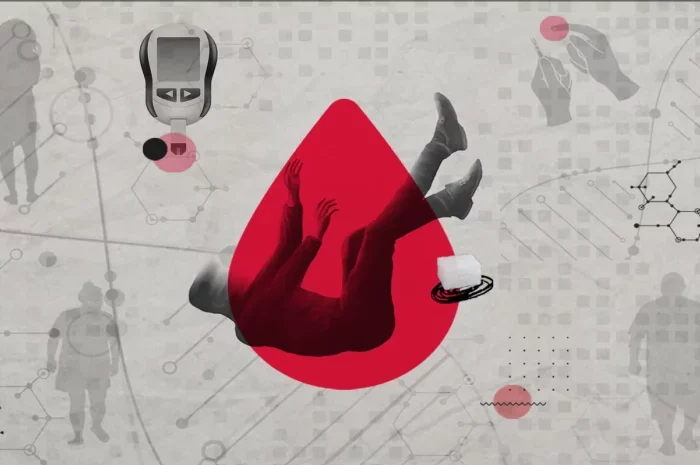Pathophysiology serves as the cornerstone of modern medicine, providing clinicians and researchers with crucial insights into the underlying mechanisms of diseases. It is a multidisciplinary field that integrates principles from physiology, pathology, biology, and other scientific disciplines to elucidate how abnormal physiological processes lead to the manifestation of various illnesses. By comprehensively understanding pathophysiology, healthcare professionals can better diagnose, treat, and prevent a wide range of medical conditions.
Defining Pathophysiology
Pathophysiology can be defined as the study of the functional changes that accompany a particular disease or syndrome. It investigates how disturbances in normal physiological processes result in the development of pathological conditions. These disturbances can occur at the cellular, tissue, organ, or systemic levels, and they often involve complex interactions between genetic, environmental, and lifestyle factors.
Historical Perspective
The origins of pathophysiology can be traced back to ancient civilizations where observations of disease manifestations were recorded. However, the formalization of pathophysiology as a distinct scientific discipline began to emerge in the 19th and early 20th centuries. Pioneers such as Rudolf Virchow and Claude Bernard made significant contributions to our understanding of disease processes by emphasizing the importance of cellular pathology and homeostasis, respectively.
Key Concepts in Pathophysiology
Pathophysiology encompasses a wide range of concepts and principles that are essential for understanding disease mechanisms. Some of the key concepts include:
Homeostasis: The body’s ability to maintain internal stability and equilibrium despite external changes. Disruptions in homeostasis can lead to pathological conditions.
Cellular Injury and Adaptation: Cells may respond to various stressors by adapting to new conditions or undergoing injury. These responses play a crucial role in the development of diseases.
Inflammation: A fundamental immune response to tissue injury or infection, characterized by redness, swelling, heat, and pain. Inflammation is a protective mechanism but can also contribute to tissue damage if dysregulated.
Genetics and Disease: Genetic factors can predispose individuals to certain diseases or influence their response to treatment. Understanding the genetic basis of diseases is essential for personalized medicine approaches.
Immune System Dysfunction: Disorders of the immune system, such as autoimmune diseases and immunodeficiency disorders, can result in aberrant immune responses that contribute to tissue damage and disease progression.
Endocrine and Metabolic Disorders: Dysregulation of hormone production and metabolism can lead to a variety of diseases, including diabetes, thyroid disorders, and adrenal insufficiency.
Neurological Dysfunction: Disorders of the nervous system, such as neurodegenerative diseases and stroke, involve complex pathophysiological mechanisms that affect neuronal function and connectivity.
Clinical Relevance
A thorough understanding of pathophysiology is essential for healthcare professionals across various disciplines, including physicians, nurses, pharmacists, and allied health professionals. By applying pathophysiological principles in clinical practice, healthcare providers can:
Diagnose Diseases: Recognizing the signs and symptoms of diseases and understanding their underlying pathophysiology is crucial for accurate diagnosis and appropriate treatment selection.
Develop Treatment Plans: Knowledge of pathophysiology guides the development of targeted treatment strategies aimed at addressing the underlying mechanisms of disease. This may include pharmacological interventions, surgical procedures, or lifestyle modifications.
Monitor Disease Progression: Monitoring changes in physiological parameters and biomarkers allows clinicians to assess disease progression and adjust treatment plans accordingly.
Prevent Disease: Understanding the risk factors and pathophysiological mechanisms underlying diseases enables healthcare providers to implement preventive measures, such as lifestyle modifications and vaccination programs, to reduce the incidence and severity of illnesses.
Research and Innovation
Pathophysiology serves as the foundation for biomedical research aimed at advancing our understanding of disease mechanisms and developing novel therapeutic interventions. Researchers in the field of pathophysiology utilize various experimental techniques, including cell culture, animal models, molecular biology, and imaging studies, to investigate disease processes at the molecular and cellular levels.
Furthermore, advancements in technologies such as genomics, proteomics, and bioinformatics have revolutionized the field of pathophysiology by enabling researchers to explore complex disease pathways and identify potential targets for intervention. By elucidating the underlying mechanisms of diseases, pathophysiological research contributes to the development of innovative treatments and personalized medicine approaches tailored to individual patients’ needs.
Challenges and Future Directions
Despite significant progress in the field of pathophysiology, several challenges remain. The complexity of many diseases, the interplay between genetic and environmental factors, and the heterogeneity of patient populations present obstacles to fully understanding disease mechanisms and developing effective treatments.
Additionally, emerging infectious diseases, antimicrobial resistance, and the increasing prevalence of chronic conditions pose ongoing challenges to healthcare systems worldwide. Addressing these challenges requires continued investment in research, education, and healthcare infrastructure to advance our understanding of pathophysiology and improve patient outcomes.
Looking ahead, future developments in areas such as precision medicine, regenerative medicine, and artificial intelligence hold promise for transforming the practice of medicine by enabling more targeted and personalized approaches to disease prevention, diagnosis, and treatment.
Conclusion
Pathophysiology plays a critical role in modern medicine by providing insights into the underlying mechanisms of diseases and guiding clinical decision-making. By understanding how disruptions in normal physiological processes lead to the development of illnesses, healthcare professionals can diagnose diseases accurately, develop targeted treatment strategies, and improve patient outcomes. As our understanding of pathophysiology continues to evolve, so too will our ability to combat diseases and improve the health and well-being of individuals worldwide.


























